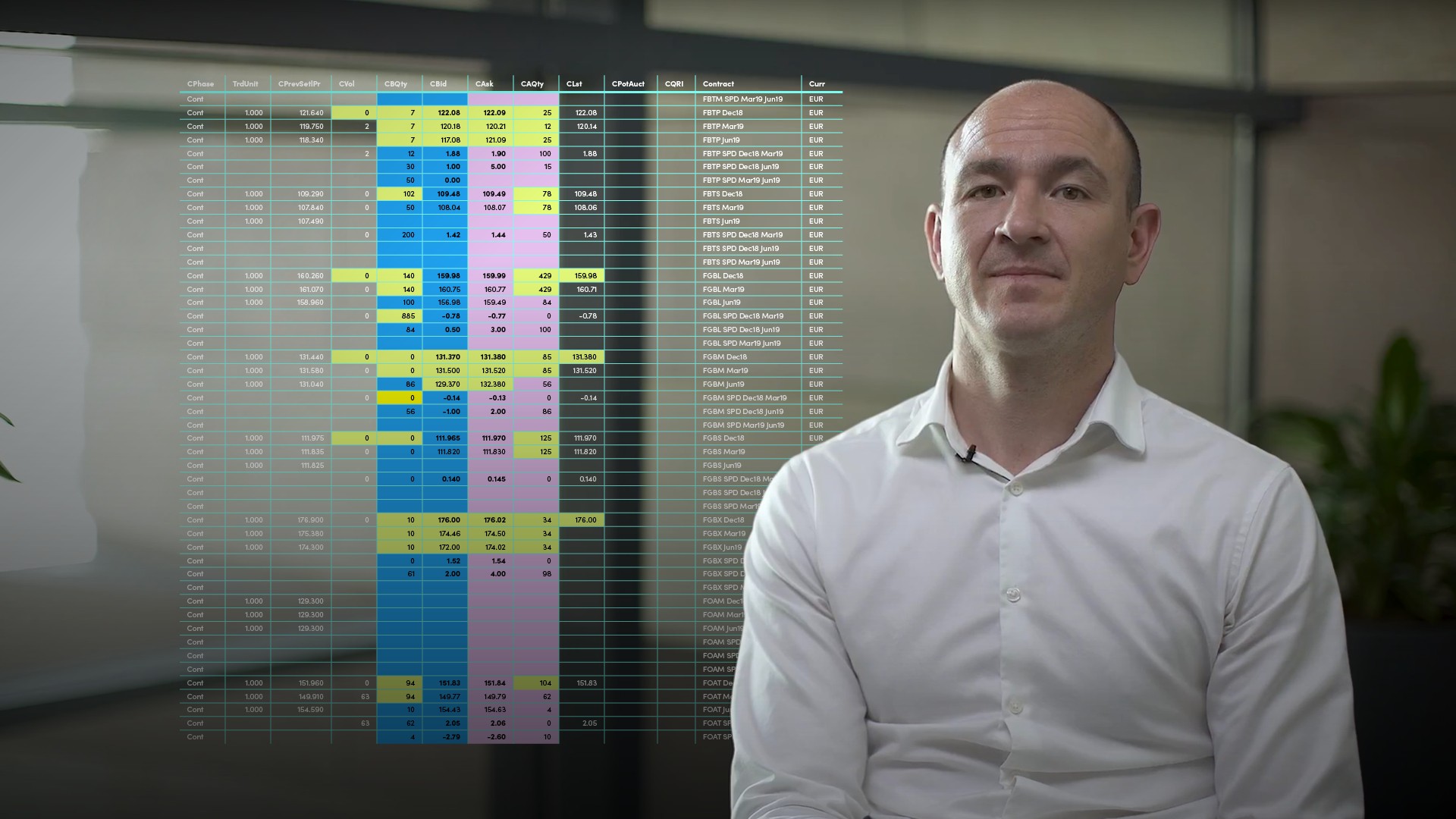
Overview of Futures

Lee Bartholomew
15 years: Fixed income markets
A futures contracts is a specific type of contract which is standardised and traded on an exchange. Lee explains the context in which these are executed and how they are priced.
A futures contracts is a specific type of contract which is standardised and traded on an exchange. Lee explains the context in which these are executed and how they are priced.
Subscribe to watch
Access this and all of the content on our platform by signing up for a 7-day free trial.

Overview of Futures
3 mins 17 secs
Futures are financial contracts which give the buyer the obligation to buy a financial instrument at a predefined price on a set date from the contract seller, who in turn is obligated to sell the financial instrument at a said price.
Key learning objectives:
Understand how future contracts are priced
Identify the various ways futures are traded
Understand how future contracts are settled
Subscribe to watch
Access this and all of the content on our platform by signing up for a 7-day free trial.
How are Futures Contracts Traded?
Futures contracts are standardised contracts traded on the exchange, this means standardised weekly and monthly expiry dates on set underlyings. Forwards are traded over-the-counter (OTC) and are non-standardised.
The futures price determines the price the buyer must pay and what the seller will receive. However, the future will have no value at the point of inception of the contract. The contract will gain or lose value over its lifetime.
Futures contracts can be both physically-settled and cash-settled. Physical settlement means the buyer of the contract pays the futures price and receives the underlying security from the seller at expiration.
How are Futures Contracts Priced?
The futures price is the price to be paid at the futures expiry date by the contract buyer to the contract seller. The futures price is determined by the following formula:
- F = Future Price
- S = Underlying Asset Spot Price
- R = Risk-Free Rate that applies to the futures contract
- T = Time to Futures Expiry Date
The future price is based on the current spot price, plus carrying costs, and minus opportunity costs. Carrying costs are costs avoided by the future buyer from holding the future instead of the underlying, these can be storage costs, interest costs, forgone dividend and coupon payments, opportunity costs or other costs.
How are Futures Contracts Settled?
Cash-settled contracts have a final payment which depends on which party is in-the-money at the contract expiration:
- If the futures price < market price at expiration, then the buyer is in-the-money. They are able to buy the security for a price below the current market price, therefore a single payment of the value of the contract will be made by the seller to the buyer.
- If the futures price > market price at expiration, then the seller is in-the-money. They are selling the security for a price above the current market price, and therefore, a single payment of the value of the contract will be made by the buyer to the seller.
Futures on indices have to be cash-settled because you cannot physically deliver the underlying. Stocks, Bonds and Commodities can be either physically or cash-settled.
Subscribe to watch
Access this and all of the content on our platform by signing up for a 7-day free trial.

Lee Bartholomew
There are no available videos from "Lee Bartholomew"






















